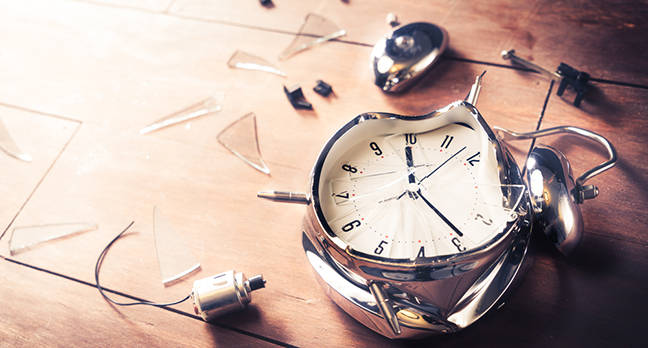UK Sleep Experts Say It's Time To Kill Daylight Saving For Good

The streets of Soho aren't alive with disco or bellbottoms anymore, so maybe it's time to ditch another '70s icon we should have outgrown by now, says the British Sleep Society (BSS).
A group of researchers in the UK affiliated with the BSS published a paper this week calling for the permanent abolition of Daylight Saving Time (DST) and adherence to Greenwich Mean Time (GMT), in large part because modern evidence suggests having that extra hour of sunlight in the evenings is worse for our health than we thought back in the 1970s when the concept was all the rage in Europe.
Not only does GMT more closely align with the natural day/light cycle in the UK, the boffins assert, but decades of research into sleep and circadian rhythms have been produced since DST was enacted that have yet to be considered.
The human circadian rhythm, the 24-hour cycle our bodies go through, drives a lot about our health beyond sleep. It regulates hormone release, gene expression, metabolism, mood (who isn't grumpier when waking up in January?), and the like. In short, it's important. Messing with that rhythm by forcing ourselves out of bed earlier for several months out of the year can have lasting effects, the researchers said.
According to their review of recent research, having light trigger our circadian rhythms in the mornings to wake us up is far more important than an extra hour of light in the evenings. In fact, contrary to the belief that an extra hour of light in the evenings is beneficial, it might actually cause health problems by, again, mucking about with the human body's understanding of what time it is and how we ought to feel about it.
"Disruption of the daily synchronization of our body clocks causes disturbances in our physiology and behavior … which leads to negative short and long-term physical and mental health outcomes," the authors said.
That, and we've just plain fooled ourselves into thinking it benefits us in any real way.
- Atomic clocks are so last epoch, it's time someone nailed down the nuclear clock
- tz database community up in arms over proposals to merge certain time zones
- Time Lords decree: No leap second needed in 2024
- Stop the US daylight saving madness!
"It is sometimes erroneously assumed that DST provides us with more sunlight, but, in fact, all we are doing is changing our behavior by moving our schedules forward by one hour," the researchers said. "While this means there is an hour more sunlight after work/school, DST comes at an expense of one hour less sunlight before work/school, simply because we get up and travel to and from work/school one hour earlier."
Of course, eliminating DST is easier said than done in the modern world where computers dictate everything from business services to transportation. Last-minute delays and advances of DST have triggered IT messes in various parts of the world in recent years, so let's hope for more advanced notice if the powers that be decide to take the sleep doctors' orders.
And for the love of sleep, the researchers beg, don't spring forward permanently.
"Mornings are the time when our body clocks have the greatest need for light to stay in sync," said Dr Megan Crawford, lead author and senior lecturer in psychology at University of Strathclyde. "At our latitudes there is simply no spare daylight to save during the winter months and given the choice between natural light in the morning and natural light in the afternoon, the scientific evidence favors light in the morning." ®
From Chip War To Cloud War: The Next Frontier In Global Tech Competition
The global chip war, characterized by intense competition among nations and corporations for supremacy in semiconductor ... Read more
The High Stakes Of Tech Regulation: Security Risks And Market Dynamics
The influence of tech giants in the global economy continues to grow, raising crucial questions about how to balance sec... Read more
The Tyranny Of Instagram Interiors: Why It's Time To Break Free From Algorithm-Driven Aesthetics
Instagram has become a dominant force in shaping interior design trends, offering a seemingly endless stream of inspirat... Read more
The Data Crunch In AI: Strategies For Sustainability
Exploring solutions to the imminent exhaustion of internet data for AI training.As the artificial intelligence (AI) indu... Read more
Google Abandons Four-Year Effort To Remove Cookies From Chrome Browser
After four years of dedicated effort, Google has decided to abandon its plan to remove third-party cookies from its Chro... Read more
LinkedIn Embraces AI And Gamification To Drive User Engagement And Revenue
In an effort to tackle slowing revenue growth and enhance user engagement, LinkedIn is turning to artificial intelligenc... Read more

